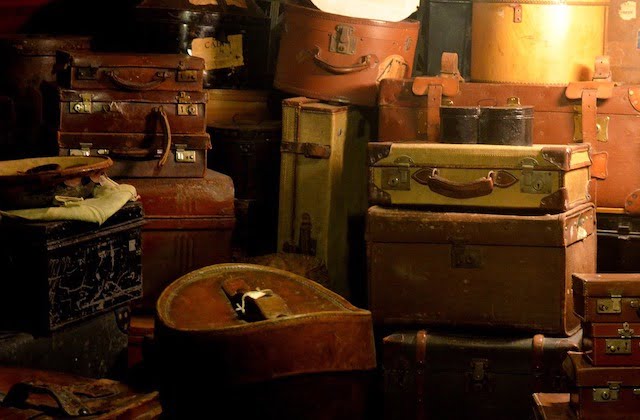
Ferreting Memories
When I inherited boxes of old family “treasures” 55 years ago, they included an animal skin that may have been a small leopard or fox. It was from the days when a fur coat or cape was a great status symbol, and I imagine it was saved with the hope of turning it into a hat or coat collar. I found it so disturbing that my instinct was to throw it out, but that seemed too cold, cruel, and disrespectful to the creature whose life had been taken for a human’s momentary whim. So, I put it in a box and carried it throughout my life, from Eugene, Oregon to New Zealand to Corvallis, always with the old treasures, including jewelry, clothes, and photos.
My kids played with the box, and it remained in the attic for my grandkids to find on occasion.
About 35 years ago, my husband and I had a ferret named Pipi. We loved that ferret. She was spunky and cuddly, and loved interacting with us both. We were sad when she died, and our kids found it amusing that we were such devoted “ferret parents.”
Last week, my grandson came to visit with a friend of his from college. After we had lunch on the back porch, he asked, “Grandma, is it okay if I show my friend Pipi?”
“Pipi the ferret?” I asked, shocked that he thought she might still be around (after all, she came and went from our lives long before he was born).
“Yes, Pipi,” he answered. “I mean her pelt.”
For a moment, I just stared at him, dumbfounded.
“Alex, I did not skin my ferret.”
He persisted, reminding me of the old animal skin in the attic. I started to laugh, realizing he had confused the two stories…the old animal skin I’d carefully saved all these years and the beloved pet I had carefully buried in our yard with a rose bush on top of her grave.
A few days later, I was teaching a class on distorted family stories, and I asked my students this question.
“Long ago, a woman had a ferret as a pet. After the ferret died, she kept its skin as a memory of the animal she had loved. What else can you surmise about her?”
Everyone wrote a paragraph with their thoughts about this woman. They were all fairly disturbing when I think about them being the kind of story my great-grandchildren could tell about me, but the most astonishing was this one.
“Her name was Edna, and she lived in the back hills somewhere between mountains. She had no education, she collected weapons, and she was a hoarder of many things. When she died, it took three people a week to clean out her house of all the piles. The worst was her habit of skinning all of her pets as well as those of the neighbors’.”
This could have been the story my descendants told about me, all based on the assumption of a 10-year-old boy when he saw a photo of me and Pipi, then saw the pellet, and put the two together.
How many other stories do we tell ourselves that seem like facts but are based on assumptions?
Telling life stories has become an industry. Phone apps and social media show us a tiny fragment of someone’s life, which then becomes a representation of their whole life, we compare that fragment to ours, and a myriad of feelings follow. A friend misses lunch, a partner forgets a birthday, we aren’t invited to an event, and we create a narrative about our very worth, the state of our relationships, and even whether we are worthy of love.
Or, a kid finds an old animal skin in his grandmother’s attic and a photo of her with her pet ferret, and his grandkids flinch in horror that their ancestor was a hoarder who lived in a barricaded fortress between two mountains, shooting at visitors and skinning anything that came her way to add to her mounds of hoarded goods.
I think there is an important lesson here about assumptions and questioning them before acting on them as facts.
I hope your spring is full of peonies, roses, fresh basil, lots of hummingbirds, and time spent with people you care about. I hope you consider one of my upcoming groups to add to your self-care, wisdom, and connections with others. And I wish for you the patience to remember that stories about other people (and ourselves) are scrapbooks and collages which, at best are simply fragments of truth.
